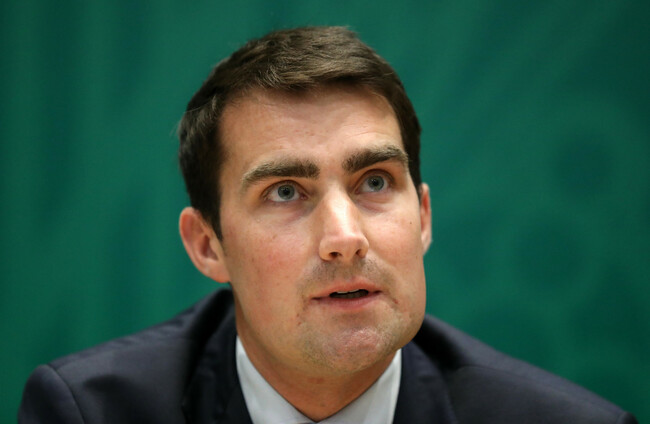MINISTER FOR FINANCE Jack Chambers has announced that this year’s Budget will be held on 1 October.
The date is one week earlier than usual, which will further fuel speculation that an early general election is on the cards.
However, speaking on RTÉ’s Morning Ireland, Chambers insisted that the Government is “absolutely committed” to seeing out its full term until March next year.
“We have to submit our fiscal and budgetary submission to the European Commission on 15 October and the week prior to that, both myself and Minister Donohoe will be attending ECOFIN and Eurogroup meetings, so 1 October is the natural date,” Chambers said.
When asked if Budget 2025 was being brought forward a week early as part of plans for an early election, he said: “Absolutely not.
“The Government is committed to running the full term. The Taoiseach, the Tánaiste and all of government have set that out,” he said.
“The fact it’s one week different from last year really is of very little difference in the context of the social welfare bill and the Finance bill which often conclude at the end of November or early December.”
Taoiseach Simon Harris moved to dampen speculation that there will be an early election, stating ”there won’t be, because we’re going to have an election next year. That’s the plan”.
“I’ve said it many, many times. It’s my intention for this government to run its full term,” he said.
Harris said it has “been long known” by party leaders and the finance minister that the dusty ECOFIN meeting and the meeting of European finance ministers will take place on 8 October.
“Therefore, it simply makes sense to have the budget on 1 October,” said Harris.
However, less than three weeks ago, former finance minister Michael McGrath told RTÉ that there had been no discussions about moving the budget day forward, instead stating that there is little scope to do so, given the level of preparation needed.
Harris told reporters today that the public are more interested in the substance of the budget rather than the date, stating that the focus is about maintaining the “good economic position” Ireland is in right now.
He said the cost-of-living crisis is still being felt by many. While inflation has calmed, it has fallen from a very high position.
“I’m very conscious of the pressures that people are still feeling in their real life. So that’s my focus, the substance of the budget, the content of the budget, the next step is to bring the summary economic statement to cabinet next week,” he said.
October’s Budget will be the coalition’s last, but the first to be presented by Chambers, who took up the role of Finance Minister last week.
The latest exchequer report shows that corporation tax receipts have helped to boost the State’s overall tax take during the first half of this year, increasing by 15.4% when compared to the first six months of 2023.
Chambers said that further progress on housing, driving affordability and supporting renters is “an absolute priority” along with strengthening living standards, but described it as “a careful balancing act”.
He said he is working in a different context compared to Covid and the “significant inflationary environment” that was seen previously.
“Ministers across government are going to have to prioritise the areas that they want to see advanced for 2025 because we have to be careful in the context of risks that are out there.
“Despite running a significant budgetary surplus, I want to be absolutely careful and think about the choices that we make.
He said that bringing a responsible approach to macroeconomic policy “is at the core of what I want to do”.
“We want to make sure in the medium to long-term, that with the additional surplus that we’re running, that we make sure that people in five-to-ten years can continue to see progress on housing, on infrastructure, so that if the economy does level off and we see some of the risks that are there crystallise, that we can continue to invest in social affordable housing and that we have that countercyclical buffer to support the future generations.”
With reporting by Christina Finn
Readers like you are keeping these stories free for everyone...
A mix of advertising and supporting contributions helps keep paywalls away from valuable information like this article. Over 5,000 readers like you have already stepped up and support us with a monthly payment or a once-off donation.














































